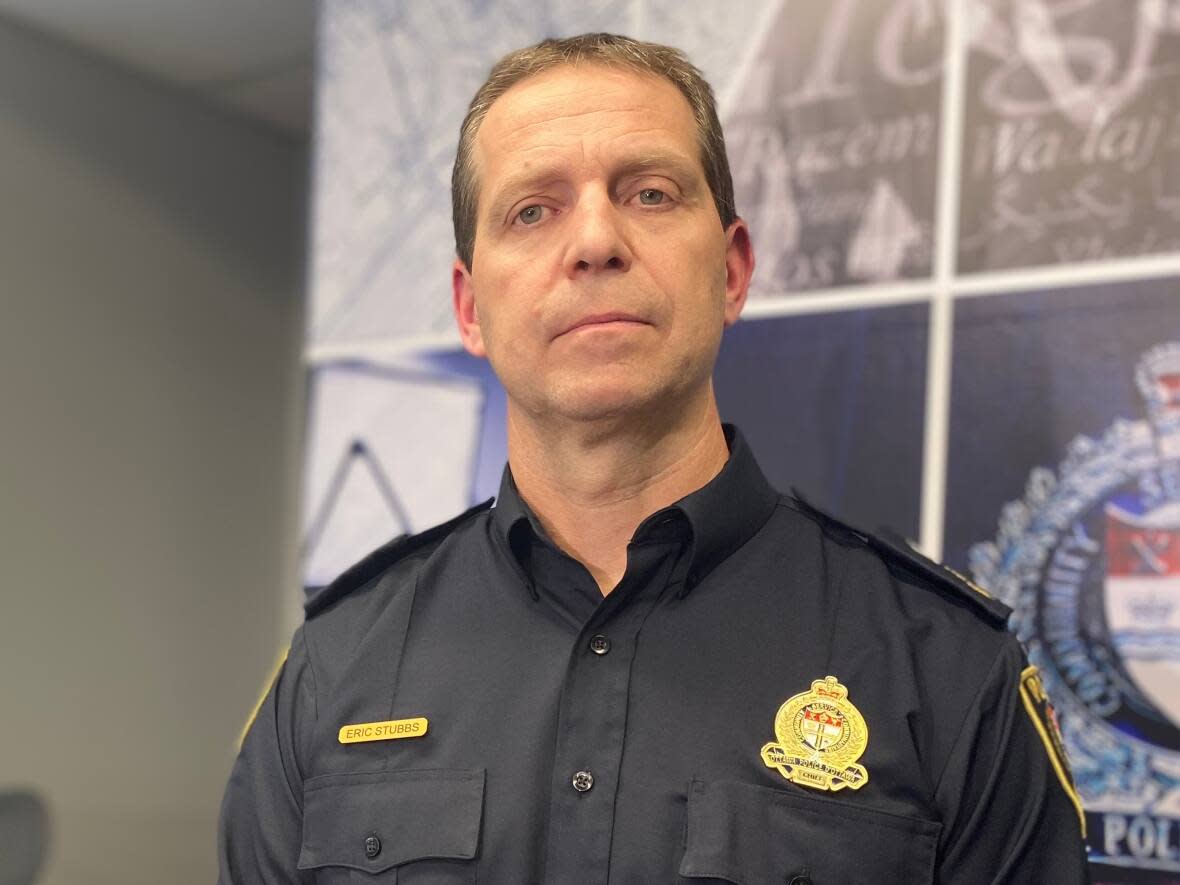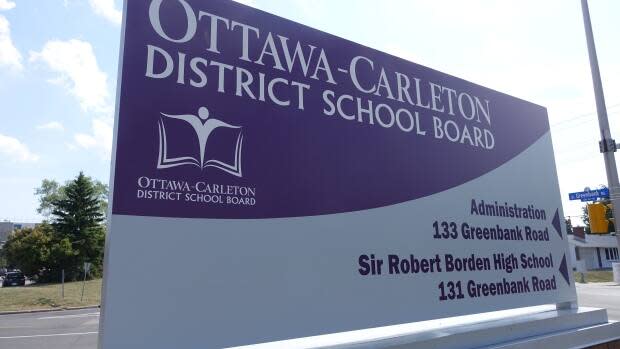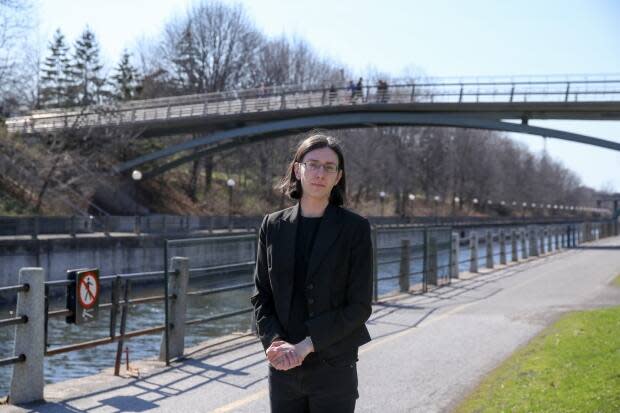Police chief wants more uniformed officers in Ottawa schools

Ottawa's police chief is hoping to get more uniformed officers back into schools, two years after the city's largest school board ended its school resource officer program and started requiring police to take off their uniforms when appearing as guests in classrooms.
The Ottawa-Carleton District School Board (OCDSB) made the changes in 2021, after its human rights and equity advisor recommended that police should be allowed in schools only when necessary and that the school resource officer program should cease.
The changes came after racialized and LGBTQ students raised concerns about their fears of police.
A few days after the board's changes, former police chief Peter Sloly announced the force was ending the program across Ottawa.
Sloly defended it, saying it served boards well, but noted that wrapping it up gave the force a chance to redeploy officers to other priority areas, like neighbourhood patrols and the sexual assault unit.
Mostly there for 'positive reasons'
Last month, following criticism of its broader stance on uniforms, the OCDSB said parents who are police officers can now attend career fairs and take-your-parent-to-school days and make class presentations in uniform.
The change came after Ontario Minister of Education Stephen Lecce wrote a memo to all public school boards, stating that they're expected to allow parents to wear their uniforms when appearing as guest speakers and those who weren't were "enabling division."
On Friday, current Ottawa police Chief Eric Stubbs told CBC Radio's Ottawa Morning that he wants to see even more uniformed officers in schools.
Stubbs said while he respects the fears and anxieties some people have, he'd rather change the perceptions of young people by having uniformed officers there "sooner than later" so they don't go their whole lives not trusting police.
"Most of the time we're there for positive reasons: to build relationships, to teach, to get to know kids and the administrators, versus an enforcement action," Stubbs said.
"And that's when it's the most positive time to build the relationship," he said.
LISTEN: Chief Eric Stubbs discusses uniformed officers
The force needs to know who's expressing concerns, Stubbs said, so that along with school administrators they can reach out and see what steps need to be taken.
"We don't want to impose ourselves in a meeting with somebody if they don't want to meet with us, but we can certainly get their input on how we can start to build a positive relationship," he said.
"And maybe those meetings do start without uniforms and ... over a series of X number of days or weeks, we build up to where there's a comfort level and a trust level. I think there's options that we can pursue to build that bridge."

An ongoing conversation
The temporary policy that banned police uniforms during school presentations was a "primarily local" decision, said OCDSB chair and trustee Lyra Evans.
It was based on thousands of pieces of feedback from students, staff, parents and members of the community, she said.
"When people who have not engaged with our community or read [the ensuing] report start issuing directives from Toronto, I'm generally disappointed," she said of Lecce's memo.
The presence of police officers in schools remains an ongoing conversation, Evans said, adding that the school board, like any institution, can change its mind.
"However, I think the communities that came out and talked to us during the creation of the initial report would say there's still a lot of work that needs to be done before that level of trust that some people have for the police would be felt by all," she said.

That feedback highlighted how both students and parents felt uniformed officers could have a detrimental impact on academics and mental health.
Some marginalized students said they felt there was disproportionate policing against students who are racialized, LGBTQ or have disabilities. There were also concerns that wearing the uniform would involve bringing a gun into a school setting.
Evans said she'll be meeting with Stubbs and the board's director of education next week for more discussions.
"I'd love to see a position that everybody feels comfortable with, that everybody feels content with. I'd love to see a compromise come out of this," she said.


